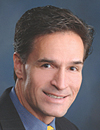
Mike Murphy
Salespeople. You can’t live with them, you can’t live without them.
As frustrated as I get listening to a salesperson on the phone who really doesn’t want to listen to me - especially if I say “no” - it is entertaining to hear how they are going to respond to my objection. Yes, I love a good sales pitch as much as the next person. Chalk that one up to an earlier career as an HVAC peddler and even as a trainer of HVAC peddlers.
THE DREADED NO
In the Japanese language there are about 11 different ways to say the word “no.” Each has a slightly different meaning, from the very courteous “no, thank you” when declining another serving of sushi, to the decidedly frank “no way unless hell freezes over” when tossing a salesperson out of one’s hausu. This variety enables the Japanese people to have a very clear and concise understanding of the type of “no” they are dealing with.In the English lexicon, things are much more confusing. We just say “no.” And, in a fashion similar to when people ignored Nancy Reagan’s pleas to stay off drugs in the 1980s, we usually ignore the word “no.”
The typical HVAC salesperson in North America would not be very successful in Japan because he believes that “no way unless hell freezes over” is a buying signal related to an environmental concern for climate change. The customer has left the proverbial door open in that there actually is a remote possibility that the temperate climate in hell could change some day. (With the opposing theories of global warming and global cooling, and the fact that some people believe there actually is a hell on earth, anything could happen.)
So, the astute salesperson simply must help the customer see the burning need to buy now, rather than wait for the inevitable - the gates of hell. The frozen gates of hell.
You see, selling is not such a difficult occupation. Almost anyone can do it.
WHEN NO MEANS NO
However, the irrational exuberance of some salespeople often amazes me. In an effort to regurgitate every factoid about their product, in an effort to manipulate responses with questions, in an effort to get the sale at any cost, they forget one very important point. Listen to the customer.That means active listening, rather than thinking about one’s next sentence while the customer is talking. An active listening practice skill is to repeat another person’s words in your head as they are talking. It is impossible to think other thoughts while doing so. If you must use a customer’s talking time as your thinking time, then you may not be very prepared about your company’s product or service. True, that you must be aware of a customer’s buying signals mentioned in conversation, but that will all fall into place if you listen and then react to their needs.
My favorite salesperson is Steve Howard, founder of the ACT Group. I have known Howard since 1987, and he is now a contributing author for this magazine, and a friend who lets me bounce around on a mountain bike with him whenever I’m in Phoenix.
As I stated earlier, I love a good sales pitch. He is always on, always professional. Always the ultimate, smooth, polished salesperson. I know that I’m being sold when I’m around him; but I love talking to him because he is simply the best salesperson I’ve ever met.
Howard will tell you that listening is the key to understanding the customer. Customers that offer the no-way-until-hell-freezes-over, toss-you-out-the-door no are people that haven’t been listened to very carefully. Even in North America, people are generally polite when they have been professionally sold. When no one listens to them, no means no.
Murphy’s Law:To be a professional salesperson is the ultimate compliment.
Publication date:10/22/2007

Report Abusive Comment